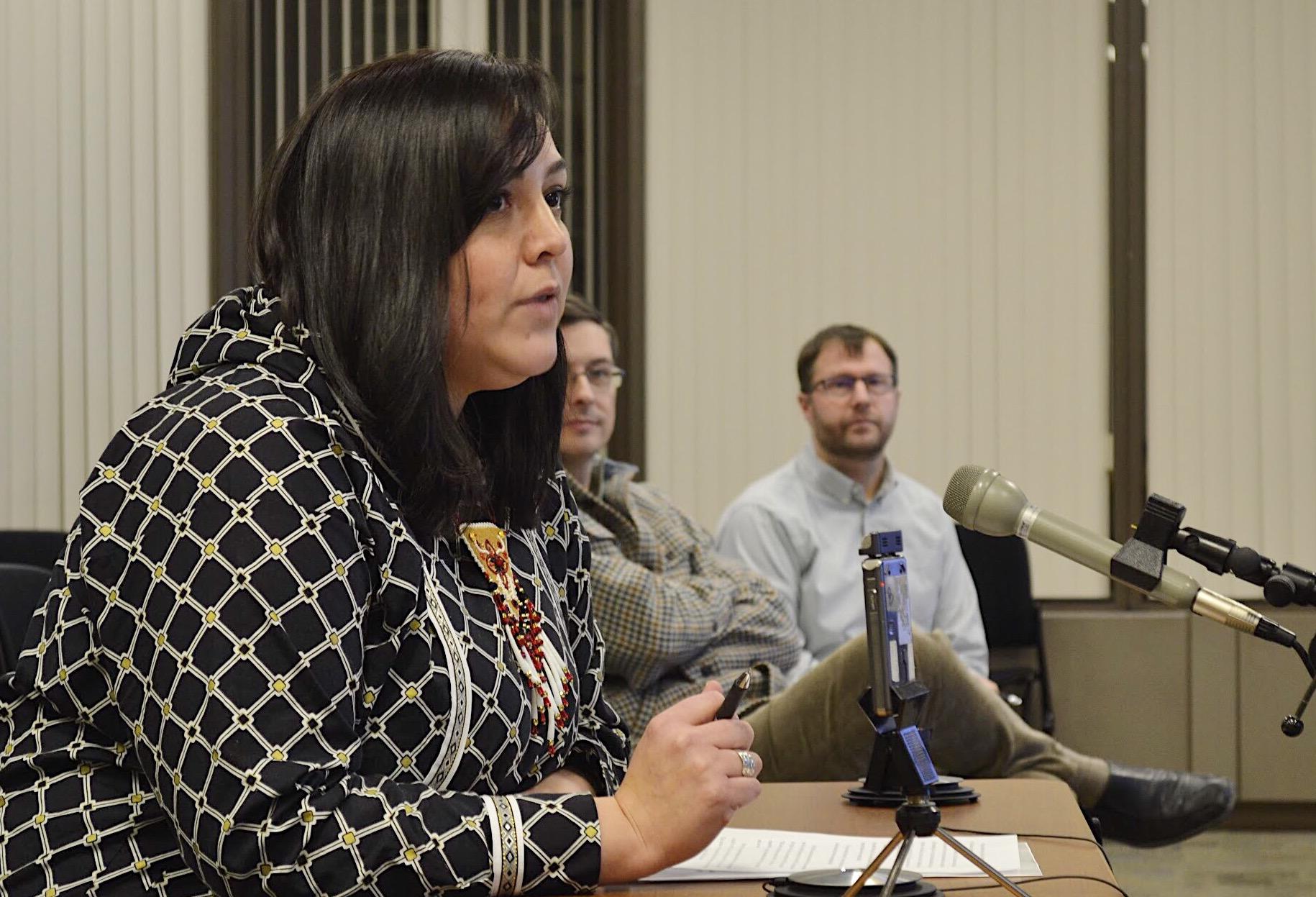
The tone of a hearing in Anchorage on two draft permits for the proposed Donlin Gold mine was very different from those held in the region where the mine would be located.
Those who gave public comments to state regulators Jan. 26 in Anchorage expressed trust and support for the proposed project.
The Anchorage comments came from industry groups and Native corporations.
Five people testified. Each spoke in enthusiastic support of the mine’s waste and wastewater plans, and the Donlin project overall.
That reaction differs sharply from the comments delivered weeks before by rural Kuskokwim residents at similar hearings in Bethel and Aniak.
There, the majority of residents living downriver of the proposed mine said that they didn’t want it.
To them, the project’s potential economic benefits weren’t worth its risks to a river, land and culture built on subsistence.
But in Anchorage, the industry groups and Native corporations saw it differently. Andrea Gusty grew up on the Kuskokwim in Aniak. She’s vice president of corporate Affairs for the Kuskokwim Corporation. The Native corporation owns the surface rights to the proposed mine site and has built a strong partnership with Donlin Gold.
“Development and traditional subsistence Alaska Native lifestyle does not have to be mutually exclusive,” Gusty said. “They can exist in harmony,”
TKC calls Donlin’s plans “environmentally and socially responsible.”
“Not only does TKC trust their ability to do it right,” Gusty said. “We will make sure it is done right. Because Donlin has worked with TKC and our shareholders every step of the way.”
Gusty has confidence in the three-step water cleaning process outlined in one permit, which requires the mine’s wastewater to meet state standards for drinking water or aquatic life water.
Donlin also has worked closely with Calista Corporation, the regional native corporation that owns the sub-surface rights to the mine.
Like TKC, Calista is in full support of Donlin. Donna Bach grew up in Bethel and works as Calista’s government affairs liaison.
“The Donlin Gold prospect will provide opportunity for jobs,” Bach said. “I think there’s a lot of pride and fulfillment, not just in the environmental, responsible way in which it’s being handled, but also to bring pride back to a region that needs jobs.”
Trade groups echoed the potential benefits of more employment for a region with few jobs and no industrial base.
During the mine’s exploration phase, 90 percent of its camp workers were Alaska Native corporation shareholders or descendants.
During the life of the proposed mine, Donlin predicts 50 to 60 percent of its workers will be Alaska Native corporation shareholders or local hires.
“Donlin remains a poster child in our industry of what you can do to ensure that communities benefit from an operation in their region,” Alaska Miners Association Executive Director Deantha Crockett said.
Crockett predicts that Donlin will not only boost the economy of the Kuskokwim region; it would grow the economy of the entire state at a time when revenue from its main natural resource, oil, is declining.
Public comments on Donlin Gold’s waste and wastewater draft permits will be accepted through Feb. 13.
Anna Rose MacArthur is a reporter at KYUK in Bethel.




